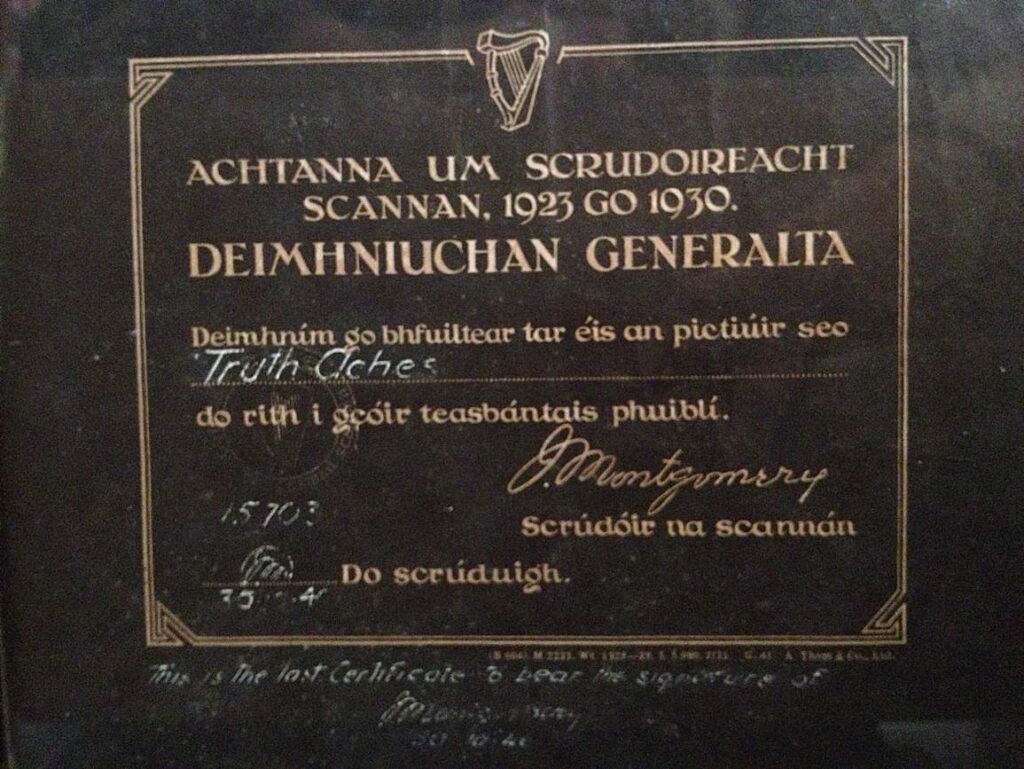
On 26 October 2018, Ireland voted to remove the archaic criminal law of blasphemy from its constitution. Almost one million people (64.85 per cent of participants) voted, in what Taoiseach Leo Varadkar called a ‘quiet revolution’, to remove the word ‘blasphemous’ from article 40.6.1.i of the Constitution. This had previously stated that ‘the publication or utterance of blasphemous, seditious, or indecent matter is an offence which shall be punishable in accordance with law.’
The bill to remove blasphemy was signed into law by the president later that year. However, just three years later, the Irish government are introducing a new, even more authoritarian bill that will severely limit free speech, and has the potential to criminalise modern blasphemers. Barring amendment or rejection, this bill is set to become enshrined in Irish law.
Currently being debated in the Seanad, the upper house of the Irish parliament, the Criminal Justice (Incitement to Violence or Hatred and Hate Offences) Bill 2022 would update and expand Ireland’s hate speech laws to include incitement to violence or hatred against persons or groups on the basis of protected characteristics, including religion, race, disability and gender.
The bill contains many provisions that will make the average liberal or civil libertarian’s blood run cold. Under this bill, existing crimes such as assault and vandalism could lead to longer prison sentences if hatred is found to be the motive. According to Section 7, the mere possession of material that the state deems ‘hateful’ could result in citizens being sent to prison for up to five years if their actions are held to be ‘likely to incite violence or hatred’ against a person with protected characteristics. Should the bill it find its way onto the statute books, then, despite the government’s insistence that it includes a provision to ‘protect genuine freedom of expression’, there is little doubt that Ireland would become the ignominious holder of one of the most comprehensive ‘hate speech’ laws, if not the most totalitarian, in Western Europe.
In April, the bill passed through the Dáil (Ireland’s equivalent of the House of Commons) relatively unscathed. Only 14 of the 160 Dáil members voted against the proposed amendments. Yet its provisions are comprehensive and authoritarian.
The Justice Minister Helen McEntee, who was responsible for the bill, argued that it was necessary in order to discourage the targeting of those with protected characteristics. Her comments were echoed by Pauline O’Reilly, a senator of the Green Party, who told the Seanad that restrictions on free speech were necessary to protect vulnerable people from ‘such deep discomfort that they cannot live in peace’. The senator is also reported as saying, using highly emotive language, that ‘the dirty, filthy underbelly of hatred in Irish society’ necessitates ‘the restriction of freedom’.
On the face of it, these proposals may sound like a good idea. Few would oppose laws that protect the rights of individuals, especially if the individual belongs to a persecuted or marginalised group. No ordinary, sensible person would tolerate despicable acts such as racist or misogynistic violence.
Except that words are not violence. Verbal abuse is not the same as physical abuse. According to those who support hate speech legislation, living in fear of being ‘attacked verbally’ is a restriction on one’s freedom. A rhetorical question commonly deployed by opponents of free speech in this debate is, ‘why is it acceptable to protect freedom of speech for everyone when doing so harms the right of some people, in particular, those with protected characteristics, to live in peace?’ The question is what conclusion should follow from this. Those who support the severe limitations on free speech proposed by the bill would say that it is justified by its alleged ability to protect vulnerable people’s right to ‘live in peace’. But the alternative conclusion would be that everyone has to accept a certain amount of rough-and-tumble, and that no one’s ideas are above criticism. Sometimes, words can even act as a bulwark against physical violence – against which every liberal democracy has numerous laws to protect people.
Clarification is essential when it comes to the application of laws, especially those relating to civil liberties. But tyranny likes grey areas. The bill’s current definition of hatred (clause 2(1)) is vague and tautological:
‘“Hatred” means hatred against a person or a group of persons in the State or elsewhere on account of their protected characteristics or any one of those characteristics.’
This non-definition – ‘“hatred” means hatred against’ – led Thomas Pringle, the Independent TD (MP) for Donegal, to criticise the bill. He noted in a debate in the Select Committee on Justice that one ‘remarkable’ feature of the bill was that ‘hate is not defined in it’. Fundamentally, it is difficult to see how ‘hatred’ or ‘hate speech’, where it does not cross the line into existing criminal offences, such as harassment, libel, death threats or incitement to violence, could really mean anything more than ‘offensiveness’. But whatever the Merseyside police or hardline progressives might think, the idea that being offensive might be worthy of criminalisation is well beyond the current laws of either England or Ireland, and would be an extraordinarily illiberal step.
Failure to define a crime can potentially lead to anyone being found guilty. When such vague definitions serve as the basis for a conviction, courts often have to base their sentence not only on a person’s actions but also on their beliefs.
Consider the idea brought forward in the UK by Stella Creasy to make misogyny a ‘hate crime’. For several years the Labour MP has sought to make being motivated by misogyny an aggravating factor in criminal sentencing—with a potential prison sentence of up to seven years if it was determined that the crime was committed by someone with a hatred of women. We already have laws that deal with the most serious of misogynistic crimes, such as sexual assault and domestic abuse. Yet it is strange to think that a violent crime against a woman where the defendant was not motivated by misogyny should automatically be punished less severely than one where he or she was so motivated. If the harm done to the victim is the same in each case, there are real concerns with arguing that the law should categorise specific kinds of beliefs, when they motivate a crime, as making that crime liable to more severe punishment than it would be, had the defendant not been motivated by those kinds of beliefs.
McEntee and other supporters of the bill claim it is necessary to protect minority groups from actual verbal abuse. However a provision deeply buried in the bill indicates that its effects would reach much farther than that. Under Section 10 of the bill, the preparation or possession of material ‘likely to incite violence or hatred’ against people on account of their protected characteristics is a criminal offence punishable by up to two years’ imprisonment, when such preparation or possession is ‘with a view to the material being communicated to the public or a section of the public, whether by [the defendant] or another person’, and ‘with intent’ to incite hatred or violence or ‘being reckless’ as to whether they are incited. In other words, if you privately possess material that might incite, not even violence, but the more nebulous response of hatred, and you are ‘reckless’ about whether hatred is incited if the material is shared publicly, then you could be guilty of a criminal offence – regardless of whether the material actually results in anyone’s being abused.
An even more chilling provision is then introduced (clause 10(3)): where the defendant is found to have possessed such material, and ‘it is reasonable to assume that the material was not intended for [his or her] personal use’, it is to be presumed ‘that the material [is] not intended for personal use’ unless he or she can prove otherwise. Thus, if the defendant is found to possess material likely to incite hatred, then, if it is reasonable to assume it was not for personal use, then they would be required to prove that it was, in order to escape conviction. In other words, this section, a little over 30 words long, effectively abolishes the presumption of innocence. The burden of proof will shift from the prosecutor to the defendant, on the grounds not of a proved intention, but of what it is ‘reasonable’ to assume the intention was.
As the ‘possession’ clause suggests, this bill, like other hate-speech laws around the world, such as Scotland’s infamous Hate Crime and Public Order Act, does not seek to protect vulnerable people from abstract definitions of hate, but rather is intended to limit what you can say or write. As such, it will curtail legitimate debate and pose a serious threat to free expression. Anything that prevents people from freely holding beliefs not sanctioned by the state, or viewed by the law as ‘dangerous’, is a threat to a free and liberal society. The idea of an informed citizenship is anathema to authoritarians.
As noble as they sound, laws against hate speech do not promote equality. They give victims an artificial sense of justice, but in reality, they do little to address the issues that have led to the supposed crime in the first place. If Irish lawmakers want to reduce prejudice against protected characteristics, they must abandon this bill and focus on education. Knowledge increases tolerance and acceptance. The irony is that this can only be achieved through the free exchange of ideas – which is exactly what this law is intended to prevent.
In The Gulag Archipelago (1973), Aleksandr Solzhenitsyn points out that people are unaware that they are complicit in acts of wrongdoing because dogmatic adherence to an ideology seems to justify their actions. In the case of Ireland, an ideology of identity that promises to protect minority groups from offence is allowing its adherents to hide their illiberal behaviour under the guise of moral righteousness.
If Ireland is to remain a free country, it is essential that this bill be rejected in its entirety. A copy of Solzhenitsyn’s book should be left on the desk of every member of parliament.
For a bibliography of our articles on free speech and free thought, see: Free Speech in the Freethinker.
Enjoy this article? Subscribe to our free fortnightly newsletter for the latest updates on freethought. Or make a donation to support our work into the future.


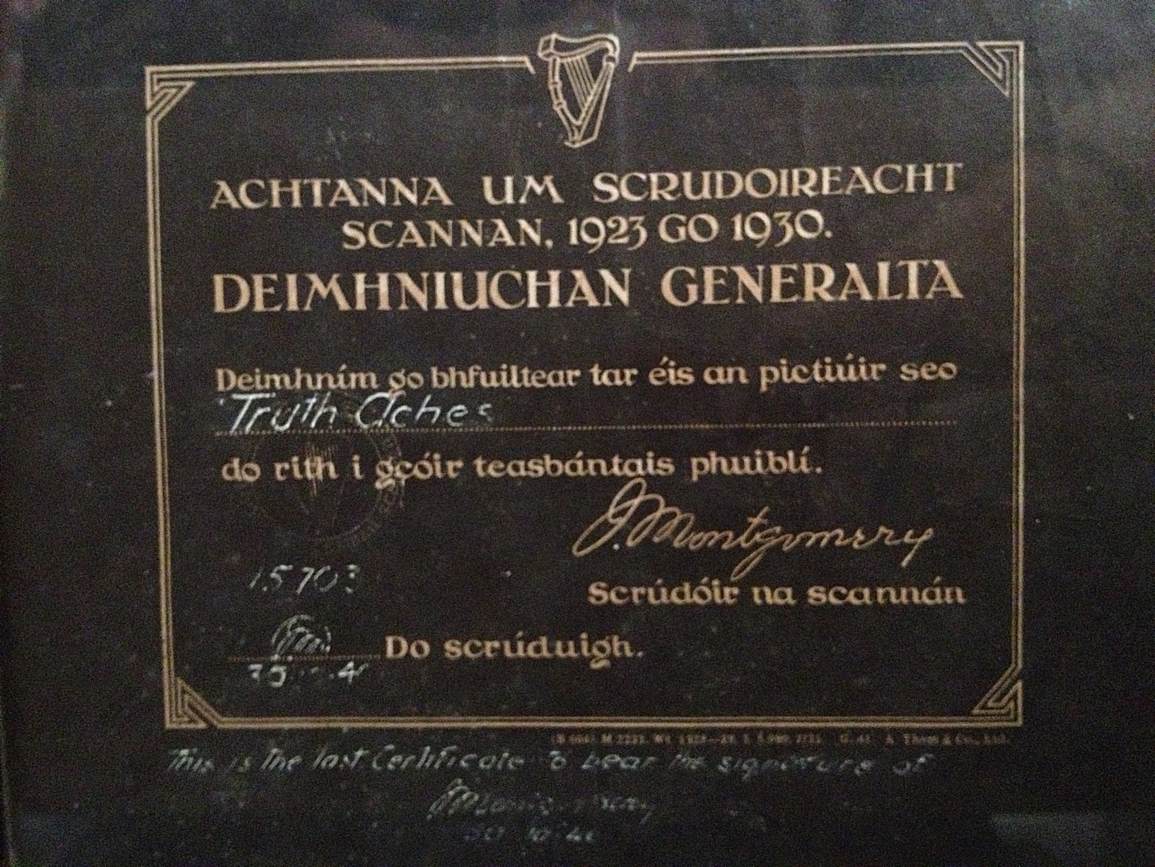
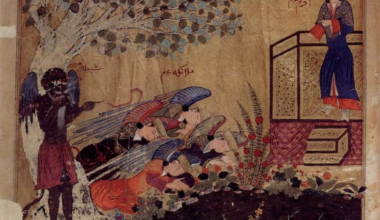


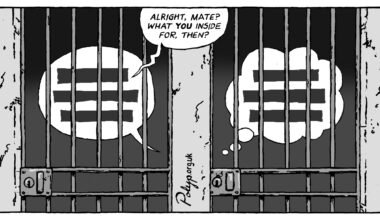

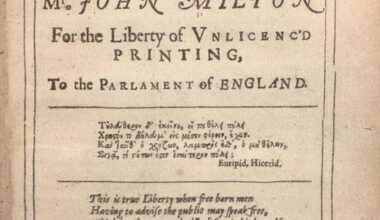
1 comment
Spot on.
Your email address will not be published. Comments are subject to our Community Guidelines. Required fields are marked *
Donate